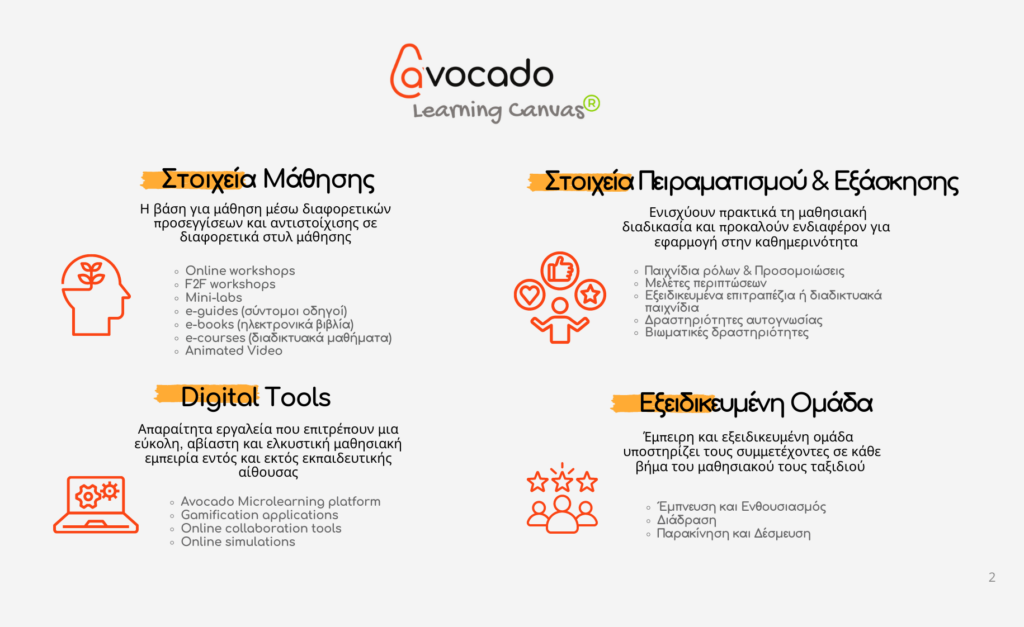The need to shift from being a simple provider/supplier to being a significant partner
What is the relationship between L&D and learning providers like?
Do they support the strategy or do they just take on the task of delivering some seminars?
The talent gap is clearly not addressed through recruiting alone. A recent McKinsey survey reveals the stakes of the times: 9 out of 10 executives believe that skill gaps will grow exponentially in the coming years.
L&D is at the heart of the new era and is called upon to play a critical role in the “war for talent” through the following challenges:
- Reskilling & upskilling
- L&D Budget
- 5 generations working together and creating new conditions
- Technology and automation are changing the content of jobs
- A plethora of training methods and tools – now with AI!
- Demonstrate the value of programs to the organization
To respond to these challenges, L&D is looking for a different level of collaboration that goes beyond simply commissioning one or a series of ‘seminars’.
It needs a partner and co-facilitator who can support these needs along the following 5 axes:
1 Overall project curation
L&D definitely knows the organization, its needs and where it wants to target. The learning partner needs to be able to understand – and why not – co-create the L&D strategy and provide comprehensive (end-to-end) program curation.
At the same time, it must have expertise, tools, methods and human resources suitable for the audience the organization wants to address. To have flexibility, without “ready-made recipes”..
2 Develop participant engagement
How will L&D ensure that participants maintain their commitment from the beginning to the end of the program?
Surely communication experts, the advertising agency or marketeers can help. And of course this will require a significant budget.
Or it can look for a learning partner who can support the overall communication of the programs by utilizing the most modern ways of communication.
And his contribution doesn’t stop there. The engagement is continuously built and strengthened through the content, the very implementation of the program, the facilitators who bring their passion and their essential experience to the reality of the participants.
3. Takes into account the actual value that the program brings to the organization
The headache for HR and L&D in particular is how to meaningfully assess the impact of training on the organization.
That is, the extent to which the actual objectives of the training have been achieved and there is ROI.
The learning partner is able to leverage tools that they have or even suggest others that they may not have in order to enable the organization to assess the impact of the program in improving outcomes.
4. Substantial knowledge of how skills are developed
With reskilling and upskilling being first and foremost about soft skills and mindset, success is judged by the extent to which the partner can adapt to the needs and specific circumstances of the organization. It is certainly not enough to ‘transfer’ a – usually – successful program from abroad. The “one size fits all” approach has limitations in the result it can bring.
It requires the ability to gain an in-depth understanding of the organization, its culture and its mechanisms. To propose but also implement solutions that do not stay within the narrow confines of the training program, but enhance the enthusiasm and willingness of the participants to try new ways of thinking and techniques.
5. 5 He is part of the team
The Learning Partner acts as an extension of the L&D team from day one, even before they formally agree to take on the project. He or she can support L&D even before the decision is made, with the best interests of the organization in mind, not just promoting a product or service.
It goes without saying, of course, that this support does not stop once the project is undertaken. A true learning partner must be able to provide a dedicated team that is engaged with the project and the organization throughout the implementation. And of course to be able to make proposals that ensure the continuation and establishment of knowledge with or without the presence of the partner.
The Avocado Learning Experiences
At Avocado Learning Experiences we believe that learning and developing a company’s people is a serious investment. That’s why we don’t just propose , but co-create solutions that meet the needs of every organization.
Unique approach
Our partnership starts before any project is undertaken and continues after its completion Κάθε εμπειρία μαζί μας ενσωματώνει 5 βήματα:
Lensing: through a plethora of methods we gain an in-depth understanding of the organization and its goals.
Designing: we create “your own program” with meaningful customizations as well as primary content and tools.
Delivering: we build meaningful, memorable and motivating experiences for all participants.
Feeding back: we are in constant contact and communication and provide meaningful feedback at all stages of implementation with measurable data in relation to program objectives.
Sustaining: we design meaningful actions to ensure that the outcome is consolidated.

Avocado Learning Canvas®
Avocado’s unique hybrid learning canvas (see image) ensures that a learning environment is created that motivates, fuels and excites participants, offering flexible solutions that save time and creatively leverage technology in education. .
Our mission is to act as learning partners and maintain ongoing relationships with all the organizations we work with.
Marina Kounalaki
Managing Partner
Avocado Learning Experiences
The article was published in HR BUYERS GUIDE in the Julyy 2023 issue by BOUSSIAS Publications

